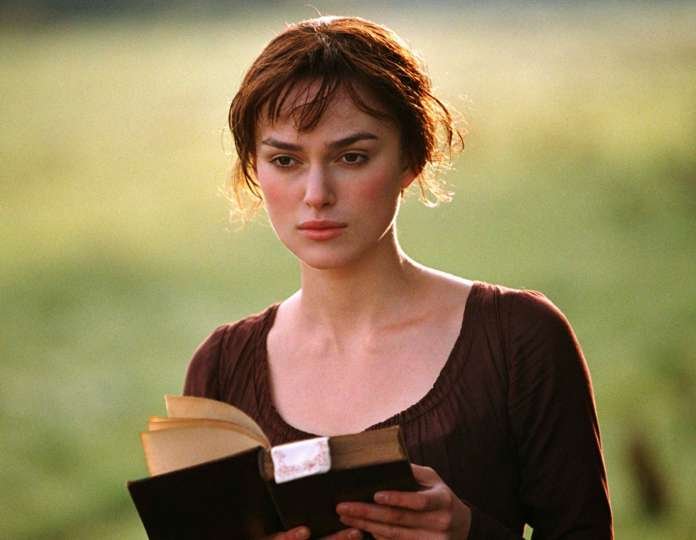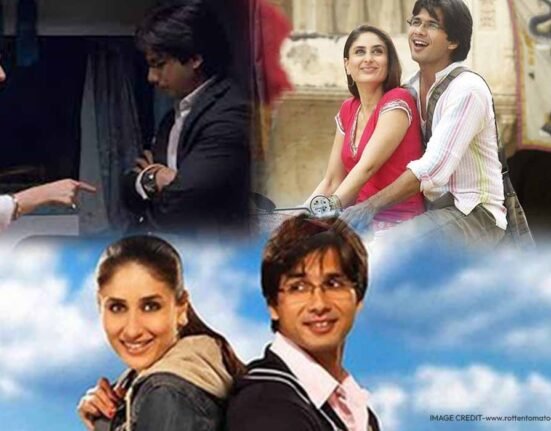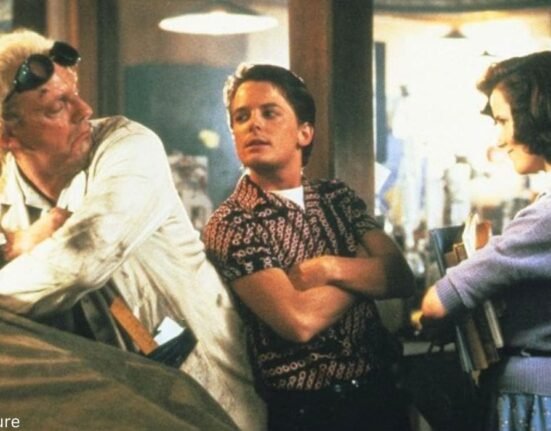Most of us are familiar with the term “transactions”. During the 1950’s Eric Berne introduced the concept of Transactional Analysis. People at the period considered a “transaction” to be a single social encounter, and “transactional analysis” was the study of social interactions between people. The writings of Freud, Wilder Penfield, Erikson, and many others greatly inspired his body of work. The Ego states are the primary TA ideas to comprehend. The ego states he identified are the Parent, the Adult, and the Child. These states represent an individual’s internal model of parents, adults, and children. An individual can be operating from any of these roles while engaging in a conversation with another person or self.
This article will help the reader understand various concepts of TA as experienced by the two prominent characters in the Pride and Prejudice Novel. Centering her work along satire and social status , Jane Austen’s Pride and Prejudice gives the reader expectations of woman during the 19th century. while reading the book, we will be faced with themes of prejudice, reputation, and class with an element of romance. At the time the book was written, physical beauty was considered a woman’s biggest asset. The author wanted to question these beliefs. In the novel, Elizabeth is the second of five daughters. She is the most knowledgeable and witty of her sisters. However, her mother begrudges Elizabeth’s “unwomanly” wit that surpasses her physical beauty, and worries that Elizabeth will not find a suitable marital alliance – the most pressing demand for a family with five daughters and little income in the English countryside.
After reading the book and watching the movie, it was clear that Elizabeth’s character operates from the adult ego state. Throughout the novel, she is constantly exposed to prejudices against women of intelligence and wit in a society that privileges physical beauty. Her mother’s prejudices concerning woman’s beauty and marrying a wealthy man are internalized in her parental ego state. However, throughout her trajectory, she is constantly trying to question these beliefs. In other words, she lives more in the here-and-now and engages in reality testing. Elizabeth even asks her mother, “Why is a woman’s life focused on marriage,” since she continually seeks partners for her daughters. Elizabeth longs for a relationship where she can be free to express herself and not feel inferior. While all her other sisters obsess over good-looking men, she is keen on becoming a self-made woman.
After Elizabeth’s initial introduction to Mr. Darcy, she learns that he makes derogatory remarks about her. This leads to her to developing a distaste for Mr. Darcy. In this situation, Elizabeth’s parent ego state is operating. The more that Elizabeth faces challenges and finds that she is not accepted for her uniqueness, the more that she finds that people perceive her to be a bossy and dominating woman. She often uses humor as a defense to cover up her hurt.
While dancing at the ball room, she operates from the child ego state. She expresses her joy, and is excited without any censor. In the movie, she almost seems to forget her mother’s disparaging comments about her looks and rather enjoys the dance. This is even clearer in the scene where she claps her hands and admires the beauty of the dancers. As the novel progresses, she meets a man named Wickham, with whom she develops an instant connection. She spends time with him, walking by the river. She becomes aware that Wickham and Darcy have been friends since their childhood. Wickham tells her a false tale about Darcy, and Elizabeth believes it. This adds to her rage and prejudices her further against Darcy. While talking with Wickham, she seems to be operating from the free child ego state, expressing her need for love.
Though Wickham is not a part of the wealthy section of the society, as her mother would like, she does not worry about that and continues to like him. As the story goes on, she encounters Darcy at several places. At each place, her prejudice against him is fueled by their terse interactions. On another occasion, she receives a proposal from her cousin; her cousin wants to marry her for her family’s property.
She rejects his marriage proposal. While rejecting this proposal, she operates from the adult ego state. Since Elizabeth’s older sister was about to become engaged to Bingley, the cousin asks Elizabeth to marry him in an effort to maintain his good name. On the other hand, Elizabeth doesn’t want to come out as a poor substitute. She doesn’t want to wed someone who only cares about her possessions and isn’t interested in her at all. All these rationalizations about her self-worth indicate that Elizabeth operates from the adult ego state when making the decision to refuse her cousin’s hand in marriage.

In one part of the movie, Darcy expresses his love for Elizabeth. While rejecting him, Elizabeth operates from the negative mode of the nurturing parent ego state. She makes remarks, comments, and forms judgments about Mr. Darcy. When Darcy’s aunt comes to know about the marriage proposal made by Darcy to Elizabeth, she speaks ill of Elizabeth. Even at this point, Elizabeth operates from the adult ego state. She responds very firmly and conveys her disregard for the aunt very assertively.
Finally, when she realizes Darcy’s true nature and unfettered love for her that does not come from societal expectation but from seeing her for who she is, Elizabeth falls in love with him. At this stage she operates from the child ego state. Although Darcy is wealthy, Elizabeth’s family does not like him because of his arrogance. Regardless of her parents’ opinions, she is willing to fight for him.In my analysis of the plot, Elizabeth operates from the I am okay, you are not okay life position.
This is evident in her interactions with Darcy, her cousin who she rejected, and also Wickham who lied to her about his story. Further she functions in non-winner script. Though she wants a man who meets her standards, she does not communicate that desire or try her fullest to make the relationship work. In the case of Darcy, she hears many unflattering tales about him, and immediately jumps to the conclusion that he is not for her. She never makes an effort to understand whether these tales are true, or why he behaves in certain ways.
Darcy is an aristocrat. He interacts with people largely based on their socioeconomic class, their manners, and their etiquettes. I believe he has a zero-tolerance approach toward people who do not meet his standards. In the initial phases of the story, he operates largely from the controlling parent ego state. He is bossy in his manner, and is looked at by others as a dominating personality.
In the initial phases of the book, he shows a strong disregard for Elizabeth. In due course of time, however, he begins to feel affection for her. While expressing his love, he operates from the free child ego state. Although his parental ego states contains various prejudices against Elizabeth, none of that stops him from expressing his love for her. He feels uninhibited by those strong beliefs held in his parental ego state. After being rejected, he operates from his adult ego state, where he seeks to understand the reasons why his proposal is not accepted.
Elizabeth’s sister elopes with Wickham.Darcy pays for Wickham’s wedding and makes sure he gets a better army job so he can support his family as a way of helping Elizabeth. This indicates that Darcy is operating from the adult ego state. Despite Elizabeth’s rejection of him, he starts to behave more in the present, which causes him to doubt the misery and prejudice that were a part of his parents’ ego states.
At another point, Darcy operates from the nurturing parent ego state. He exhibits care, love and affection for his younger sister. Finally, when he expresses to Elizabeth that he cannot imagine life without her, he operates from the child ego state. He expresses his need for love, care and support. He is uninhibited by the prejudices in his parental ego state and is willing to fight for her: the kind of man Elizabeth has always wanted.
Darcy operates from the I am okay, you are not okay life position. He deludes himself into believing that he is the most endearing and enduring person there is, and that he has the right to decide whether others deserve his love and the sort of love that he deserves. Further, he functions within the winner life script. When he has a goal, he does everything to achieve it. Even when Elizabeth rejects him, he is still willing to wait for her and does all that it would take to win her hand. His successes support this mindset and give him something to work towards even in the face of failure. Elizabeth and Darcy adopt a “I’m okay, you’re okay” life philosophy as the narrative goes on. Here, they accept one another’s strengths and limitations and function with a get-on with mindset.
The protagonists engage in a variety of games during the course of the story. I highlight two that are the most compelling to me. Darcy tells his friends that Elizabeth’s elder sister is not as deeply in love with Bingley as he is. Darcy persuades Wickham to let go of her. He is the con of the game. Bingley gives in, and he tells Jane that he has to return to London because of an emergency, thus making him the game’s gimmick.
This leaves Elizabeth and her family confused. They were hoping to get Bingley married to Jane, but his sudden announcement of his departure takes them all by surprise. When we look at this from the drama triangle point of view, Darcy is both the perpetrator and the rescuer, while Jane is the victim. According to him, Jane is not as emotionally invested in the relationship as Bingley. Darcy wants to protect his friend from getting hurt and thus begins the game. Since his intention was to protect his friend, this makes him the rescuer also.
The second game in the plot is when Collins, the cousin, proposes marriage and Elizabeth rejects him. At this point, Elizabeth’s mother tells her that if she refuses to marry Collins, she will stop talking to her and disown her. This makes the mother the con of the game. However, Elizabeth does not give into the game, and does not become a gimmick. Here, a switch occurs, where Elizabeth leaves the transaction. This leaves the mother in a state of confusion. When analyzed through the drama triangle, the mother is the perpetrator, while Elizabeth is the victim. He saves Elizabeth by assisting her in rejecting an unsolicited marriage proposal.
In this article, I presented my analysis of how the characters in Jane Austen’s Pride and Prejudice interact with one another, and I identified which ego state or life position they operate from at different junctures in the story. My main theoretical framework was Transactional Analysis, which is vast, and I have barely skimmed the surface. For further resources regarding the theory, follow the links presented below.













Leave feedback about this